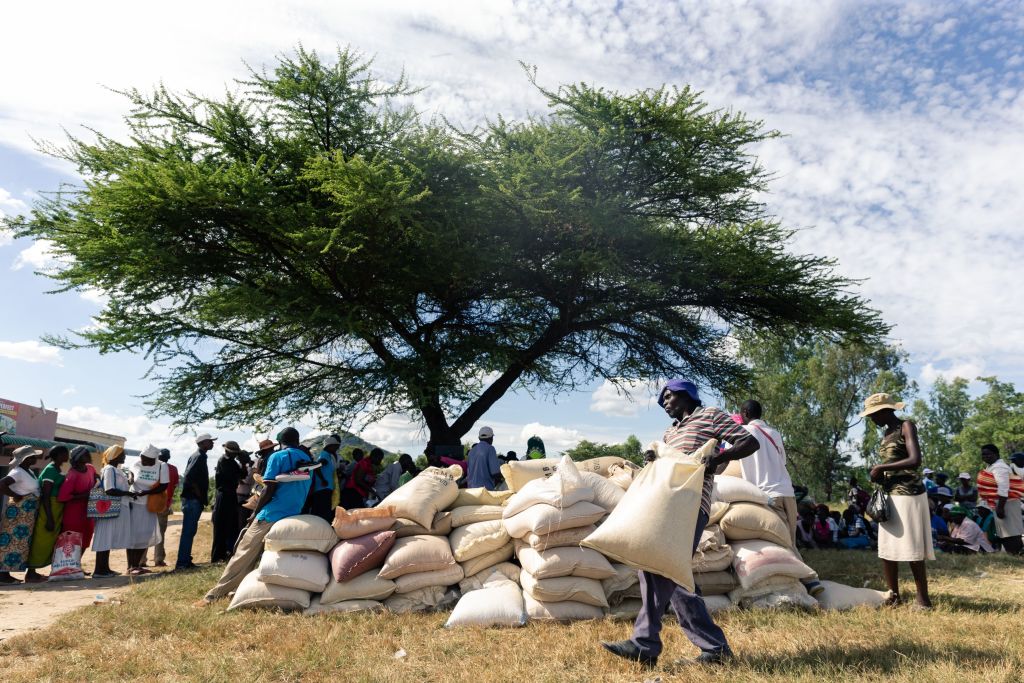Donating cash directly to impoverished families benefits the whole community, study shows


A free daily email with the biggest news stories of the day – and the best features from TheWeek.com
You are now subscribed
Your newsletter sign-up was successful
Donating cash directly to people in impoverished areas could help more than just the recipients, a new study shows.
Economists looked at 65,000 households in an impoverished, rural area of Kenya, where one group received no aid, and another received a one-time cash grant of $1,000, through a charity called GiveDirectly, reports NPR.
They found that every dollar in cash aid resulted in a $2.60 increase in local economic activity, effectively benefiting the recipients directly, and those in their community indirectly, per NPR. The study, published in November on the National Bureau of Economic Research website, lasted 18 months and found those who received cash directly spent it on essentials, including food.
The Week
Escape your echo chamber. Get the facts behind the news, plus analysis from multiple perspectives.

Sign up for The Week's Free Newsletters
From our morning news briefing to a weekly Good News Newsletter, get the best of The Week delivered directly to your inbox.
From our morning news briefing to a weekly Good News Newsletter, get the best of The Week delivered directly to your inbox.
Much of that money goes to local businesses, says Edward Miguel, co-author of the study and economist at the University of California, Berkeley. "They sell more. They generate more revenue. And then eventually that gets passed on into labor earnings for their workers," he said.
When creating an influx of cash in a community, the issue of price inflation could arise, but Miguel noted that since the local businesses were low on customers, an uptick in customers didn't require hiring more employees or increasing prices, it simply helped their business. Read more at NPR.
A free daily email with the biggest news stories of the day – and the best features from TheWeek.com
Taylor Watson is audience engagement editor for TheWeek.com and a former editorial assistant. She graduated from Syracuse University, with a major in magazine journalism and minors in food studies and nutrition. Taylor has previously written for Runner's World, Vice, and more.
-
 What are the best investments for beginners?
What are the best investments for beginners?The Explainer Stocks and ETFs and bonds, oh my
-
 What to know before filing your own taxes for the first time
What to know before filing your own taxes for the first timethe explainer Tackle this financial milestone with confidence
-
 The biggest box office flops of the 21st century
The biggest box office flops of the 21st centuryin depth Unnecessary remakes and turgid, expensive CGI-fests highlight this list of these most notorious box-office losers
-
 Nobody seems surprised Wagner's Prigozhin died under suspicious circumstances
Nobody seems surprised Wagner's Prigozhin died under suspicious circumstancesSpeed Read
-
 Western mountain climbers allegedly left Pakistani porter to die on K2
Western mountain climbers allegedly left Pakistani porter to die on K2Speed Read
-
 'Circular saw blades' divide controversial Rio Grande buoys installed by Texas governor
'Circular saw blades' divide controversial Rio Grande buoys installed by Texas governorSpeed Read
-
 Los Angeles city workers stage 1-day walkout over labor conditions
Los Angeles city workers stage 1-day walkout over labor conditionsSpeed Read
-
 Mega Millions jackpot climbs to an estimated $1.55 billion
Mega Millions jackpot climbs to an estimated $1.55 billionSpeed Read
-
 Bangladesh dealing with worst dengue fever outbreak on record
Bangladesh dealing with worst dengue fever outbreak on recordSpeed Read
-
 Glacial outburst flooding in Juneau destroys homes
Glacial outburst flooding in Juneau destroys homesSpeed Read
-
 Scotland seeking 'monster hunters' to search for fabled Loch Ness creature
Scotland seeking 'monster hunters' to search for fabled Loch Ness creatureSpeed Read
